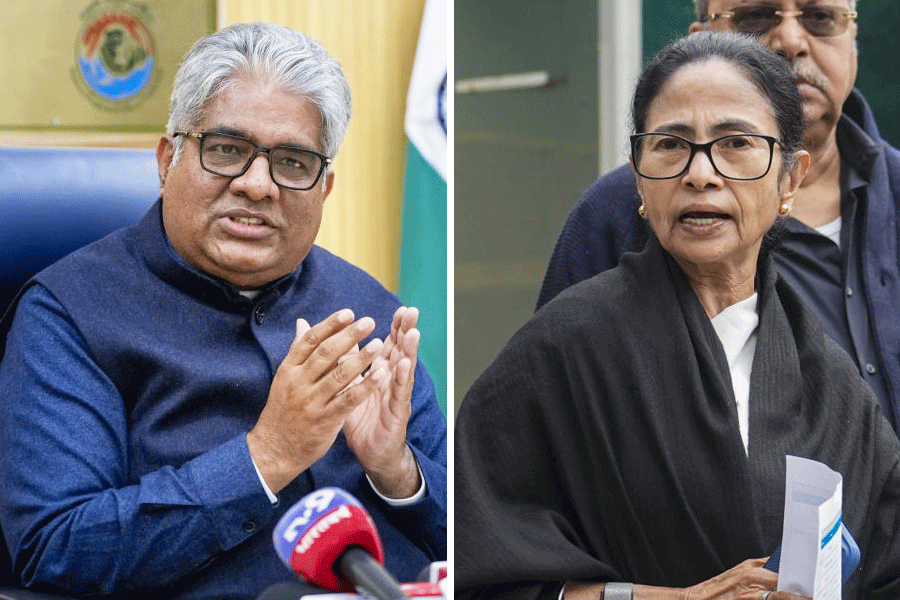 |
| The vulture breeding centre at Muta. File picture |
The state forest department is likely to unveil the Muta vulture-breeding centre this month after years of trial and error, lakhs spent on exposure trips, building, scrapping and re-building exercises.
Around a dozen vultures are being relocated from Hazaribagh to Ranchi to kick-start the breeding centre, 22km off the capital.
Inspired by Pinjore breeding hub, India’s first such initiative in Chandigarh, the Muta site has been secured with boundary walls. Nets have been put up and aviaries erected.
A vulture restaurant that will serve endangered birds carcasses free of killer drug diclofenac is also on the anvil.
“The first lot of vultures is expected to arrive in the third week of this month for the purpose,” said wildlife principal chief conservator of forests (PCCF) A.K. Malhotra.
“We will get vultures latest by December 25 or 26 to start our breeding campaign. It’s a long delayed project but work on the centre achieved pace in recent times. The centre will be ready this month,” he told The Telegraph over phone.
Vultures in India started vanishing in alarming numbers from the 1990s due to cattle painkiller and milk production enhancer diclofenac.
Safe for bovines, diclofenac residues stayed on in cattle carcasses. When vultures scavenged on them, the drug entered their system and damaged vital organs, killing them swiftly.
In an unprecedented ecological disaster, the three species — Gyps bengalensis or white-backed Bengal, Gyps indicus or long-billed and Neophron percnopterus or white scavenger — got pushed to the brink of extinction.
After much activism by conservators and resistance by pharmaceutical firms, in 2008 India finally banned the manufacture and sale of diclofenac and carried out persistent campaigns before cattle farmers to stop buying it.
Meloxicam, a similar drug that did not poison vultures, was advocated instead.
But villagers in Jharkhand and elsewhere do use the banned drug on the sly for reasons as various as ignorance, callousness and affordability.
Hazaribagh, a natural habitat for vultures in the state, is helped by the fact that the state forest department has done some good conservation work. But cattle may have strains of diclofenac even now.
“That’s why we need a breeding centre for in-situ breeding which means increasing numbers in a naturally controlled environment. The vulture restaurant will offer them diclofenac-free carcasses. After their numbers grow, they will be released into natural environs by which time the diclofenac strain will hopefully have died,” said Malhotra.
Dogged by delays, the actual cost of the Muta centre couldn’t be ascertained. Departmental sources said it could be anywhere between Rs 40 lakh and Rs 45 lakh, which includes cost of detailed project report, tours and construction.










